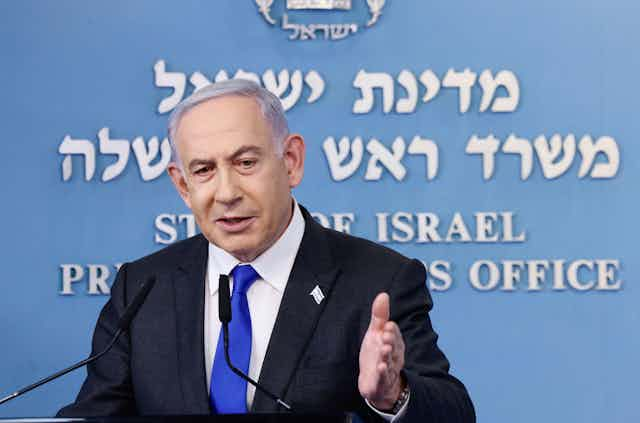The Israeli prime minister, Benjamin Netanyahu, has rejected a ceasefire plan put forward by Hamas, calling the terms “delusional”. Claiming that an Israeli victory in Gaza is “within reach”, Netanyahu has vowed to fight on until Hamas is completely destroyed.
But the US, which is involved in negotiation efforts along with Qatar and Egypt, has said that there could still be a path to a deal.
Hamas’s plan came as a counter offer to a proposal put forward a week ago by Israel, the US, Qatar and Egypt. That framework reportedly involved a six-week truce during which Israeli hostages and Palestinian prisoners would be exchanged. In response, Hamas proposed a sweeping three-stage plan aimed at ending the war completely.
Under the terms of the plan, phase one would see a pause in fighting to allow for the release of Palestinian women and children from Israeli jails. They would be exchanged for Israeli women and males under 19 being held in Gaza, as well as the elderly and the sick. At the same time, Israeli forces would withdraw from Gaza’s built-up areas as the reconstruction of hospitals and refugee camps begins.
During the second phase, Israeli forces would leave Gaza completely as the remaining Israeli hostages are exchanged for Palestinian prisoners. In phase three, Israel and Hamas would exchange bodies and remains. Throughout the process, the pause in fighting would allow for essential aid supplies to be delivered to Gaza.
Hamas’ plan also envisages ongoing negotiations to end the war completely, with a view to these concluding by the end of phase three.
Netanyahu’s calculations
Both the content of the Hamas proposal and Netanyahu’s rejection of it are revealing about the current political state of play for both parties. Netanyahu, long a highly divisive figure in Israel and abroad, has seen his approval ratings plummet in Israel since the Hamas attacks of October 7 in which 1,200 Israelis were killed and around 240 taken hostage.
A poll last month found that only 15% of Israelis think he should keep his job after the war ends. Such figures suggest an alternative reason why he may be keen to continue the war for as long as possible.
Netanyahu and his government have also been under increasing pressure from the hostages’ families, who recently stormed a meeting of the Knesset to demand more action to release their loved ones. On February 6, five Israeli women who were released from Gaza during the November ceasefire called on Netanyahu to do whatever is necessary to secure the release of the remaining 136.
Similarly, Sharone Lifshitz, whose 85-year-old mother, Yocheved, was freed during the November ceasefire and whose 83-year-old father, Oded, is still being held, has criticised Netanyahu’s rejection of the ceasefire proposal. In a press conference in the UK, Sharone Lifschitz said: “We need that deal to happen now … I don’t think Israel has another option.”

Yet Netanyahu is also facing pressure from hardliners within his own government. In particular, far-right national security minister, Itamar Ben-Gvir, has been threatening to dissolve the coalition if Netanyahu makes any concessions to Hamas.
While Ben Gvir is not part of the Israeli war cabinet – formed as an emergency response to the October 7 attacks – Netanyahu will be conscious of his potential to collapse the government.
Hamas’ aims
As for Hamas, there are reports of a deepening rift between the Gaza cadre, led by October 7 mastermind Yahya Sinwar, and the exiled leadership in Doha, headed up by political bureau chair Ismail Haniyeh.
Sinwar, who has become increasingly powerful in Gaza in recent years, is said to back a temporary immediate truce while Haniyeh is pushing for a full ceasefire with major Israeli concessions.
All the while, the war in Gaza continues. With United Nations Office for the Coordination of Humanitarian Affairs (OCHA) reporting a toll of more than 26,000 Palestinians killed, more than 65,000 injured, and 1.7 million displaced, the UN is now warning that famine is inevitable in the Strip.
As negotiations continue to go back and forth, time is running out for the most vulnerable.

